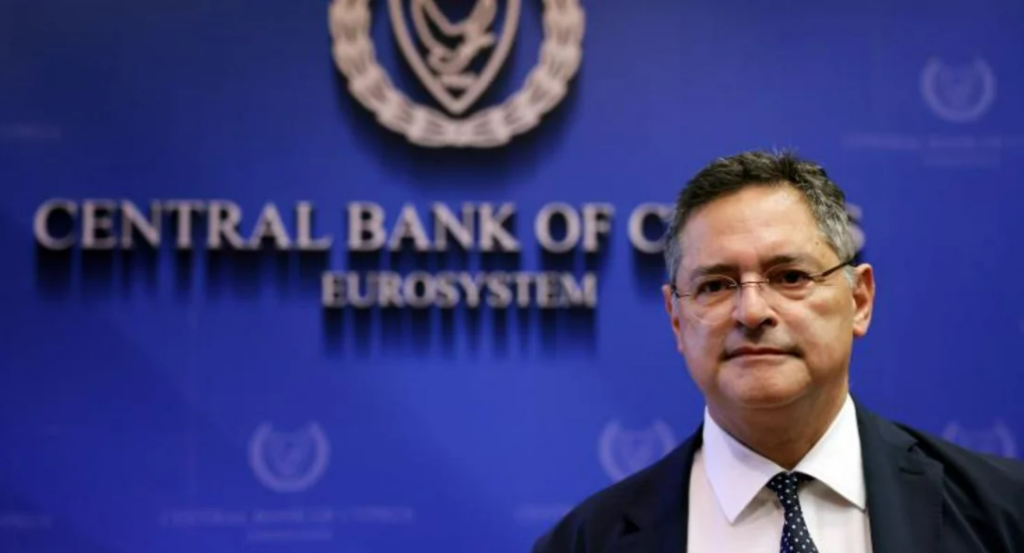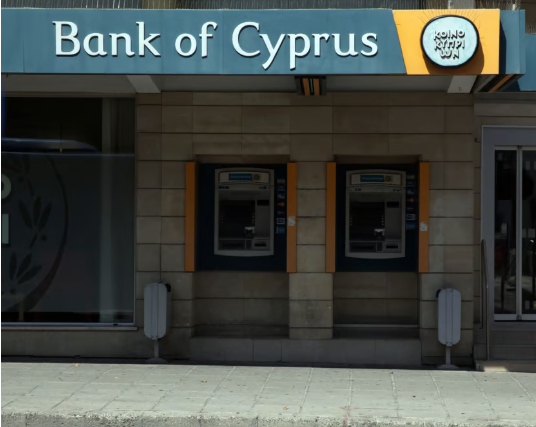NICOSIA, Nov 21 (Reuters) – Europe stands at a precarious crossroads, facing the dual threat of a recession and high inflation, warns Christodoulos Patsalides, Governor of the Central Bank of Cyprus. His stark warning at a conference this Thursday paints a grim picture of what a fresh trade war with the United States could mean for the region.
“If trade restrictions materialize, the outcome may be inflationary, recessionary, or worse, stagflationary,” Patsalides cautioned. As policymakers and business leaders grapple with uncertainty, his message serves as a wake-up call for those underestimating the ripple effects of geopolitical and economic tensions.
More Than Just Tariffs
Incoming U.S. President Donald Trump’s pledge to impose tariffs on most imports has sent shockwaves through Europe. Trump has made it clear that Europe will “pay a big price” for its long-standing trade surplus. Such policies could ignite a new era of protectionism, which Patsalides fears could destabilize global markets and plunge Europe into economic chaos.
Trade wars, historically, have been disastrous for economies. Not only do they stifle trade, but they also introduce supply chain disruptions, increasing costs for businesses and consumers. Patsalides’ stark prediction of stagflation—a toxic mix of stagnant growth and soaring inflation—could become a reality if such policies escalate unchecked.

Lower Rates Amid Rising Risks
For now, the European Central Bank (ECB) appears poised to continue its course of gradually lowering interest rates. Patsalides hinted that another rate cut is likely in December, following the ECB’s 75-basis-point reduction to 3.25% earlier this year.
“While growth in the euro area economy has been anaemic for some time now, the approach to rate cuts must be gradual and data-driven,” Patsalides emphasized. Investors seem to agree, with markets already pricing in another reduction on Dec. 12, and more cuts expected into mid-2024.
However, Patsalides also sounded a note of caution, highlighting persistent inflationary pressures, particularly from supply shocks and sticky service prices. “Policymaking is still data-dependent,” he said, adding that any rate cuts hinge on the ECB’s December projections aligning with current forecasts.
Are We Close to Stability?
Eurozone inflation has been on a downward trend, now expected to hover around the ECB’s 2% target in the coming months. Patsalides predicts inflation could stabilize at this level in the first half of 2025, earlier than previously forecasted.
Yet, challenges remain. The potential for supply-side shocks, coupled with geopolitical risks, keeps the inflation outlook uncertain. Patsalides warns that withdrawing the ECB’s tight monetary policy too soon could derail progress. “If there are no upward inflation surprises, then we can and should continue lowering rates,” he noted.
Read more: US regulators seek to break up Google, forcing Chrome sale as part of monopoly punishment
A Case Study in Resilience
For Cyprus, a small but strategically significant economy, the stakes are even higher. While the country has made significant strides in recent years—boasting the largest budget surplus in Europe relative to GDP and slashing bad loan ratios to under 8%—its reliance on tourism and energy exports leaves it vulnerable to external shocks.
“Cyprus is a small, open economy and it will be affected negatively if Europe is affected negatively,” Patsalides admitted. The nation’s economic fortunes are tied closely to its ability to monetize its vast natural gas reserves and pursue ambitious energy infrastructure projects, like undersea electricity cables linking Cyprus with Israel and Egypt.
However, these plans remain hostage to geopolitics. The ongoing Gaza conflict, tensions with Turkey, and the broader implications of a U.S.-China trade war all cast a shadow over Cyprus’ aspirations.

Buffers and Lessons Learned
Despite the risks, Patsalides remains optimistic about Cyprus’ banking system, which boasts core Tier 1 equity ratios of over 22% and liquidity buffers far exceeding regulatory demands. “All macro indicators are positive, but there will always be a business cycle,” he remarked.
Drawing on lessons from the 2008 financial crisis, Patsalides stressed the importance of strong governance, capital buffers, and liquidity reserves. “No one can accurately predict where the next crisis will come from,” he said. “At the end of the day, buffers matter.”
What Lies Ahead for Europe?
Europe’s ability to navigate these turbulent waters will depend on its policymakers’ agility and foresight. Whether it’s avoiding the pitfalls of a trade war, managing inflation, or capitalizing on its energy potential, the road ahead is fraught with challenges.
For now, all eyes are on the ECB’s December meeting and how its decisions will shape Europe’s economic trajectory. As Patsalides aptly put it, “There is always a business cycle.” The question is whether Europe can soften the landing or brace for impact.
Stay informed about Europe’s evolving economic landscape. Subscribe to our newsletter for real-time updates, expert analysis, and actionable insights into global economic trends. Don’t miss the stories shaping the future.

